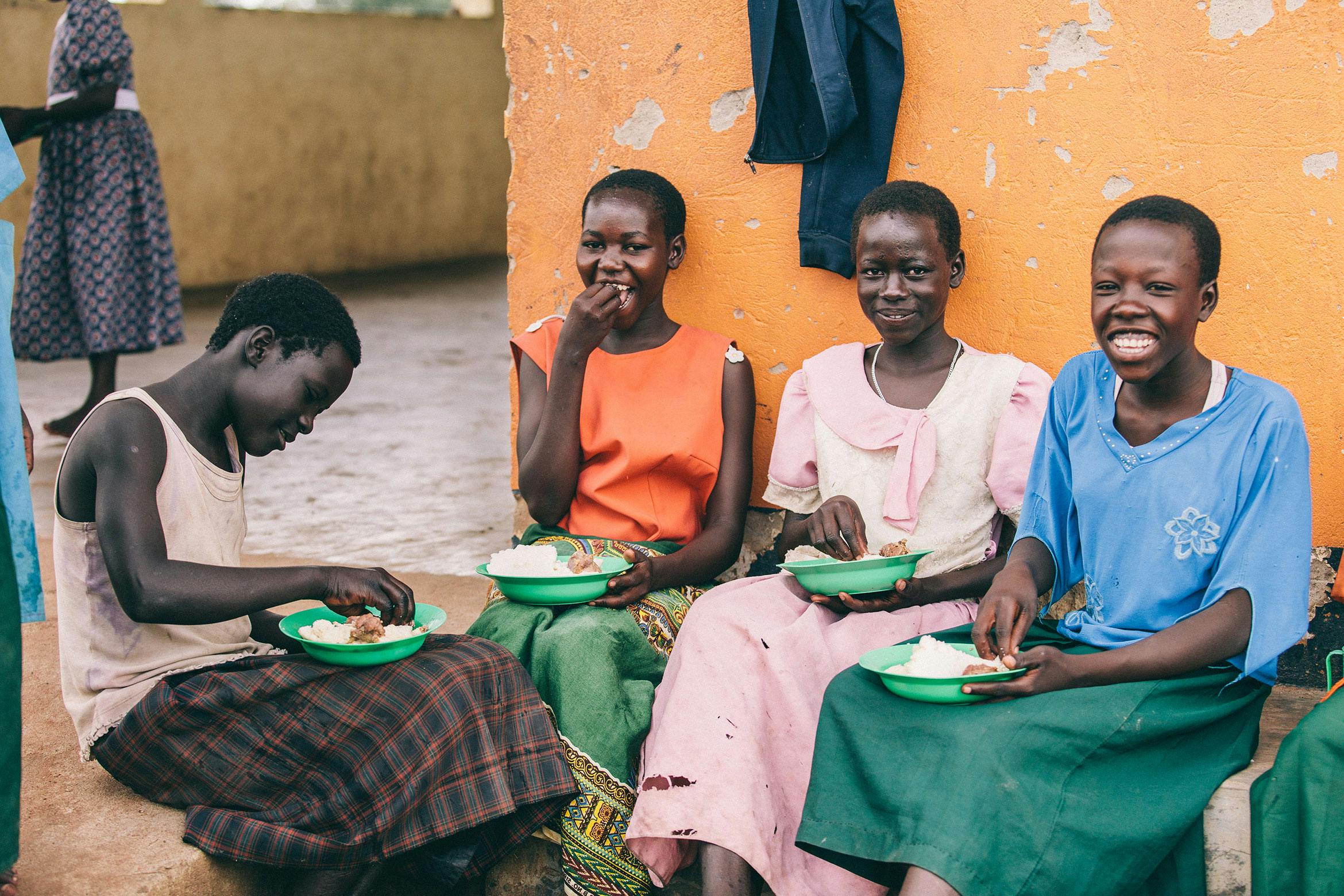

2. Zero hunger
After a prolonged decline, world hunger appears to be on the rise again. Conflict, drought and disasters linked to climate change are among the key factors causing this reversal in progress. It is time to rethink how we grow, share and consume our food. If done right, agriculture, forestry and fisheries can provide nutritious food for all and generate decent incomes, while supporting people-centred rural development and protecting the environment.
Read our stories to learn more about SDG Goal 2: Zero hunger
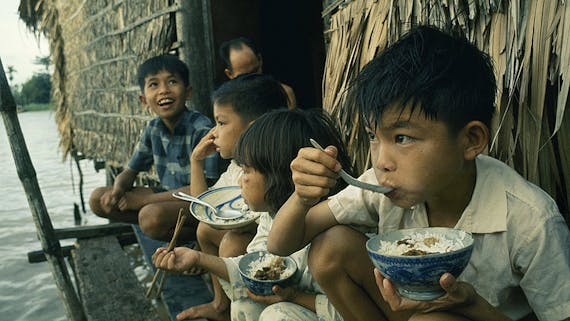
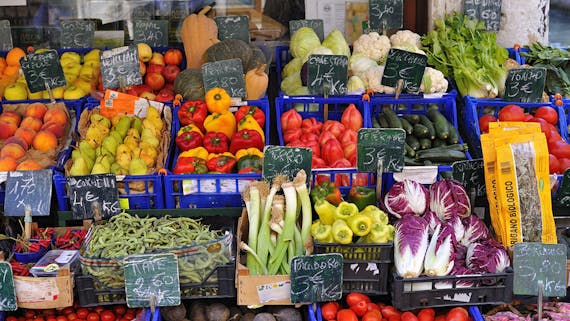
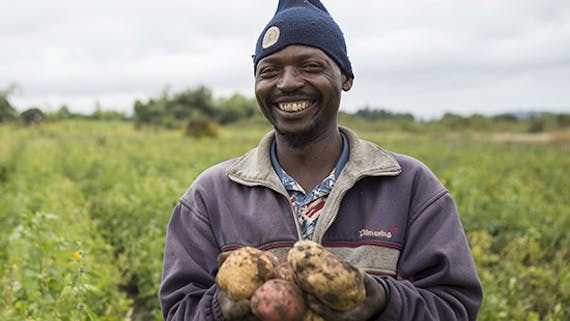
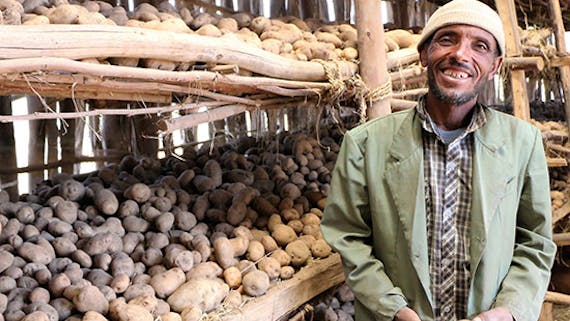
To adopt SDG 2 Zero hunger, in support of the 17 Sustainable Development Goals, please contact us at partners@eco-business.com
Adopt this goalNews

Food & Agriculture
Five charts: How climate change is driving up food prices around the world
Global food prices have seen huge fluctuations in recent years, soaring to record highs in 2022 before dropping in 2023 and rising again slowly this year.

Food & Agriculture
Can a game increase awareness and demand for local produce in Singapore? Agroath says yes
Jansher Singh, co-founder of Agroath and one of the very first participants in EB Impact's Sustainability Exchange, speaks on how the programme has enabled him to raise awareness of Singapore's food security concerns.

As soaring temperatures make life in Gaza more unbearable, aid agencies are having to factor climate change into their relief plans.

Floating solar farms may help the Philippines’ transition to renewable energy but will compete for limited resources.
Food & Agriculture
Climate and finance crises could leave 600 million hungry by 2030
Opinion

Food & Agriculture
Changing rainfall patterns in the Mekong pose new challenges
While rainfall is important, how it is collected, stored and distributed is crucial to dealing with the region’s increasingly drier spells.

Food & Agriculture
Vietnam’s rice land restrictions: Time for a rethink?
There is a case for relaxing Vietnam’s long-standing restrictions on the use of land meant for rice cultivation.

Food & Agriculture
AI can transform global food security and climate action
United Nations Under-Secretary-General and AI expert Tshilidzi Marwala writes for Context ahead of the Bonn AI and Climate Expert Meeting.

Most Rohingya end up in the Aceh province of Indonesia where they not only face hostility from locals, but more uncertainty about their future.
Food & Agriculture
Can alternative proteins protect the ocean from overfishing?
Carbon & Climate
Strengthening Asia's voice for sustainable development
Food & Agriculture
Fertilisers will not fix Africa's food crisis
Policy & Finance
Is Southeast Asia's healthcare workforce ready for climate change?
Videos

Food & Agriculture
Singaporeans love food, but are they valuing food enough?
EB Studio
Singaporeans are well-known foodies, but around 800,000 tonnes of food is wasted every year. Why is so much food wasted, and what can consumers do about it?

Food & Agriculture
Can palm oil plantations be elephant-friendly?
From conflict to co-existence: Earthworm Foundation has come up with a solution to managing human-elephant conflict in palm oil plantations in Sabah.

Food & Agriculture
Mission Impossible: Satisfying Asia’s meat appetite with plant-based food?
Can Impossible Foods, the plant-based food tech company from California, take a bite out of Asia's growing appetite for meat? Eco-Business spoke to founder Pat Brown to find out.

Food & Agriculture
Expansion of oil palm plantations into forests appears to be changing local diets in Indonesia
With no forests, people lose access to wild food and are forced to purchase more unhealthy food, including packaged foods.
Podcasts

Food & Agriculture
Looking past the label: the nutritionists’ guide to plant-based milk
EB Studio
Plant-based milks have grown in popularity in recent years, driven by a combination of health, environmental and practical concerns. Nutritionists on the Eco-Business podcast, produced in association with Kerry, weigh the pros and cons of non-dairy milk.

Food & Agriculture
Plant-based protein – fad or the future?
EB Studio
The booming alternative protein sector has experienced turbulence this year. The Eco-Business Podcast asks if growth in plant-based meat alternatives can go the distance.

Carbon & Climate
Relentless work, for no money: Southeast Asian climate scientists share their IPCC experience
What's it like co-writing a 3,500 page report on the dangers of climate change with hundreds of scientists worldwide, over Zoom calls during a pandemic? Eco-Business speaks to authors from the Philippines, Malaysia and Singapore who were in the thick of the action.

Carbon & Climate
Protecting 30 per cent of the ocean by 2030: Mission impossible?
EB Studio
Eco-Business talks to 'Aulani Wilhelm of Conservation International about why a plan to protect the ocean is critical, and why it might just work.
























